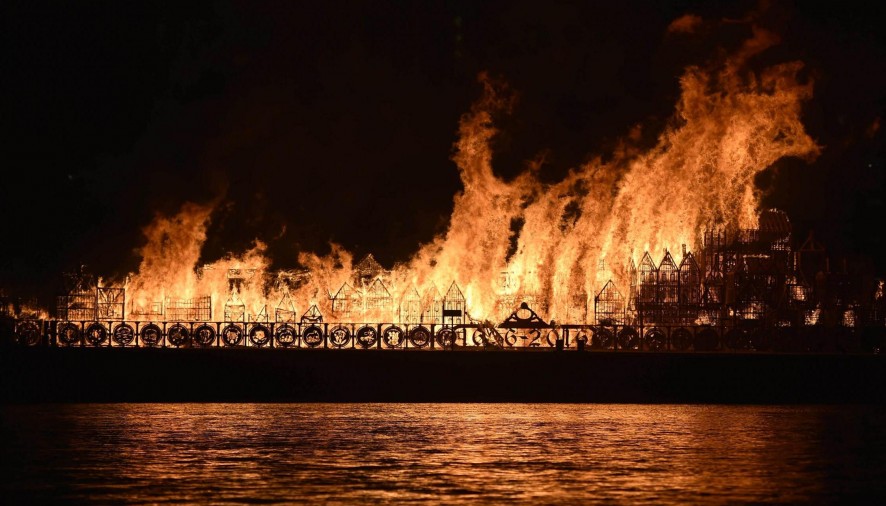During the summer I went down to the Southbank with a friend to see a replica of London being burnt down to commemorate 350 years since the great fire of London. It was an exciting event to go and see. The public crowded around the Thames to get a good view.
As much as I was enjoying being there, what stood out to me was that for the most part I was seeing the fire on various phones above individual’s heads rather than the fire itself. I personally found it difficult to see the wooden structure all together because it was dark long before the fire started. It all just became a guessing game of, ‘where can I stand so that the least amount of heads are in front of me’.
I felt as if, amidst all the phones, the point of why the wooden replica was set on fire seemed somewhat forgotten about. The fire of London did happen 350 years ago, but at the time it was a massive catastrophe! More positively it led to London being re-built much stronger than previously but nonetheless, London was burnt to the ground and we were all standing there 350 years later waiting for the fire to get bigger.
It made me wonder how long past events can really survive to have the same effect it once did and is it purely our emotional connections that keep the past alive. What about the Holocaust? Will future generations be desensitised to the Holocaust 350 years from now?
Obviously the great fire of London and the Holocaust are two completely different things, we can’t have any emotional connection with the fire of London whereas with the Holocaust a lot of people can. Although, does that mean that once it’s been long enough, that people won’t remember the Holocaust the same way as they do today as well?
You could argue that The Fire of London isn’t comparable to the Holocaust but let’s take medieval battles for instance. People were killed in battle in the same way that people are killed in wars now, yet, we remember those battles as if they’re stories. We can’t emotionally connect to it anymore. What happened was so long ago that we lost the reality of it.
We can very easily say that medieval battles were so long ago, that we don’t need to remember them in the same way as we do with more recent history, because it’s so far away from the lives of today. However, if 350 years is all it takes for the past to become a story, then it worries me that we could have the same attitude to the Holocaust in years to come.
Maybe it’s inevitable that the past becomes a story? A story being lost and twisted like rumours passed between children in the playground. We each create our own story as we live out our lives and we all become a part of the story that is humanity.
Natasha Zack
(Image courtesy of Lucy Young)

